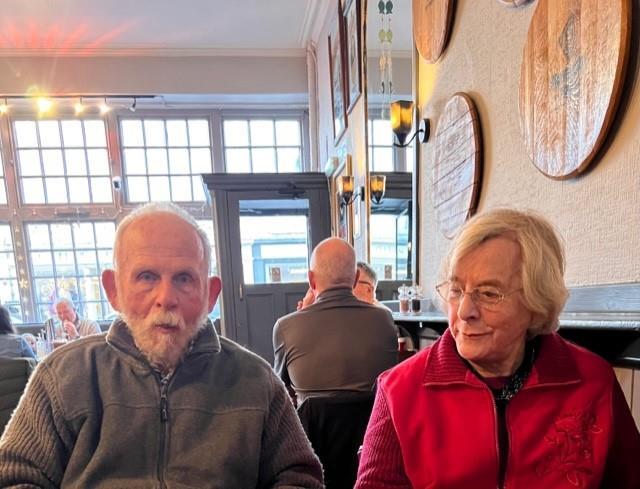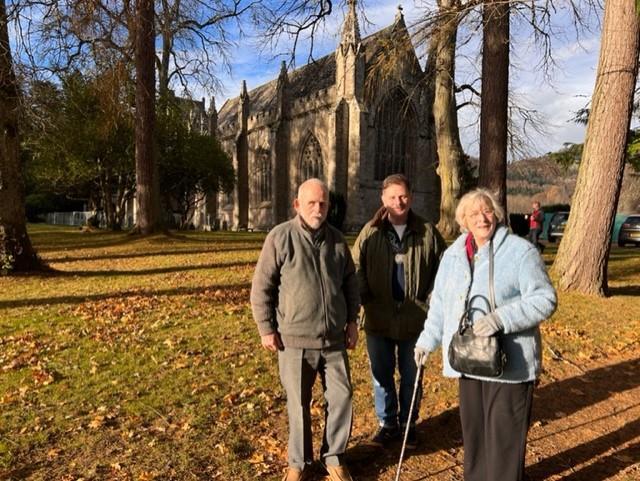I caught up with an old friend recently who confessed that she wakes up angry and goes to sleep angry.
When I expressed hope that the hours in between were spent more productively she just sighed and admitted she’d forgotten what it feels like to look forward to things.
Another friend, normally the personification of placidity, told me she’s started rowing with strangers – every day, and often without realising how much arguing has become an intrinsic part of her fight or flight response to life in 2021.
These people – and I count myself one of them – aren’t just slugging it out as fearless keyboard warriors on the battlefields of twitter but rather on the streets, on the phone, in restaurants, on the bus and in their own homes.
I’m ashamed to say I now even get angry at the newsreader on Radio 3, which is like saying you get annoyed by birdsong, the sound of waves lapping against the shore or Adele telling her young son how messed up she is on an album that will be heard by millions before he even grows up.
Just when did we all get so angry all the time?
It’s no use looking to our politicians for guidance because they’re some of the worst offenders – the level of intelligent debate in Westminster and Holyrood is often no higher than that of the playground or the pub at closing time.
In fact, I’m convinced it’s the boorish arrogance of our rulers which has made it ok to treat anyone who questions us as a threat that must be silenced or destroyed.
Just look at the smug expressions of Boris Johnson or Jacob Rees-Mogg as they’re questioned by Angela Rayner or Ian Blackford.
Rather than appear riled, they look as happy as Peppa Pigs in muck because they know their arrogance reflects behaviour on the football terraces as much as it does in the elite boxes of the Royal Opera House.
This is 2021’s new constituency, which is all about having so much front that no one dares stab you in the back.
Anger, spite and vitriol have become as necessary accessories to daily life as a mobile phone and a Netflix account.
And the more we see of inequality and the very real struggles people are experiencing right now, the harder it is to remember that happiness is an option.
It’s great when other people remind us that it is.
Unlike our Prime Minister and his porcine imaginary friends, this week I found inspiration and salvation in human form.
This happy occurrence appeared in the unlikely guise of my neighbour’s father and stepmother, who arrived to stay with him last weekend and then left huge trails of positive energy in their wake.
Not bad for a couple with a combined age of 170 who, until recently, were cycling, walking and sailing their way around Northumberland.
Their visit made me realise many things, not least that I’ve recently been operating under an invisible cloak of sadness, shrouding even joyful events in melancholy.
Anger and fear had consumed me to such a degree that I was starting to seek them out as oxygen.
I remembered the strength of family and felt blessed to speak to someone wiser, more focused and calmer than I.”
This sense of despair, lack of purpose and regret are emotions many of us are experiencing right now as we battle the recurring thought that life as we knew it pre-Covid is over.
Aged 87 and 83, respectively, I’ve known Bob and Ruth for as long as I’ve known my best friend David, which is to say our relationship predates the reunification of Germany and the first proposal for the World Wide Web.
I hadn’t seen them for many years and when they arrived last Friday it was hard not to feel the vicarious joy of families only just able to travel and reunite.
As our skies reopen it reminds us how the last few years have felt like living in a permanent holding pattern.
Over 72 hours, this dignified, stoic couple reminded me that we don’t have any time to waste, and whilst their politics might be different from mine, our common ground of liberalism felt like a fairly decent belief to share at our core.
Meantime, Bob quietly fixed his son’s shower in the time it took me to moan that you couldn’t get a reliable plumber round here.
After all, this is the man who cycled a return trip of 600 miles from Morpeth to London in 1951 just to see the Festival of Britain. He was 15.
As I listened to Bob talk I remembered my own difficult relationship with my father, and how we were estranged for so many years, only to be reunited shortly before his death.
I remembered the strength of family and felt blessed to speak to someone wiser, more focused and calmer than I.
Later, looking round our crammed houses, Bob said that David and I have much more than we need and I realised I’d been spending my way out of fear, as if buying a new pair of trousers from TK Maxx might inure me to harm.
It won’t, and in accepting this I felt a strange sense of contentment return, along with the thought that survival isn’t just about sinking or swimming – it’s also about helping each other to the shore.






